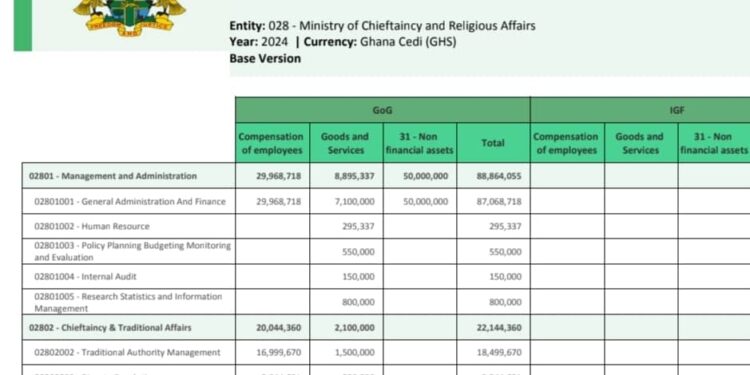The Stressful Difference Between Cutting Ministries & Cutting Costs in Ghana
1. Ghana’s new president has reduced the number of government ministries to 23 from the previous 30 in line with his campaign promises.
2. When it comes to clustering subsectors to create ministries, every wise person you meet would have different opinions.
3. In the 2000s, the Kufuor government decided that “youth and sports” belonged with “education.” The Mills government disagreed. But the latter government felt that “works and housing” somehow fit well with “water resources.” In all this clustering business, no government ever bothers to detail its thoughts as to justification. It is just what it is.
4. I, too, can have an opinion without explanation, I guess. Looking at the new list, I might argue that “water resources” fit best with “land and natural resources” due to similar concessioning and control issues. And that the same ministry should handle “environment.” “Innovations”, nowadays, fit best, in my modest view, with “Science and Technology”. I might question why “agribusiness” is being pulled out of Agriculture and ask whether “pharma business” too doesn’t deserve to be pulled out of “health” if we want to go on that tangent. Etc. I doubt anyone cares.
5. Because, frankly, the usual concern about the “number of ministers” is primarily about optics and symbolism. The people just don’t like seeing presidents appoint a large number of ministers because it “feels” and “looks” quite “obscene.”
6. Cutting down the number of ministries and ministers is thus an exercise in “reading the sentiments” of the public, and in being “responsive” and not about lean and efficient government reforms per se. Being a “listening government” can have its own rewards separate from efficiency gains.
7. To actually move in the direction of government efficiency, you must ask whether the thousands of workers in collapsed ministries would leave the government payroll or would simply be redistributed. How come we never touch the actual agencies where 98% of public workers and government business reside? Ministries are merely the tip of the iceberg. Agencies like the Police, Ghana Educational Service, and Ghana Revenue Authority are far heftier. State-owned enterprises like GNPC and ECG matter in every respect of spending efficiency than 60% of ministries.
8. Would there be less spending on bureaucracy across the government as a whole following the reduction in the number of ministries? Where are the financial numbers to prove this? If you went back in history and compared spending on “office of government machinery” before and after “listening governments” cut down on the numbers of ministers, you might be surprised to see that the expense tends to increase year on year regardless.
9. Furthermore, ministries are very varied. There are some like the Ministry of Chieftaincy and Religious Affairs that received, on average, less than $5 million a year as its entire budget. The funny Ministry of Parliamentary Affairs gets barely $600k a year. Frankly, ministries like that and the one for “business development” won’t be missed by anyone. They look like nuisances. On that score alone, citizens like to see them axed. But their total burden on the exchequer is puny.
10. Then there are the giant ministries. Health, education, Roads & Highways, and the Interior. Education gets a cool $2 billion a year, more than 20% of the total government budget in most years. In fact, in 2024, the budget of the Ghanaian ministry of education was twice that of the Nigerian federal ministry of education (in dollar value at market rate). Even if you add all public spending on education in Nigeria up, Ghana’s ministry still spends more. It is a true behemoth. The Health Ministry gets a billion dollars. If you really want to make major savings in government spending, you could introduce reforms in health and education that would eclipse the savings made from abolishing 5 ministries. And, here I am talking about truly ABOLISHING. Like, man, sacking workers and auctioning V8s. Not the Ghana-style ministerial collapses in which everything remains as before except the few titles dropped.
11. Anyway, the issue of how to save money across the government is a very broad and multifaceted one. The biggest area is actually in debt management. Then capital expenditure. And finally procurement related to general government operations. Only then does one even get to payroll issues. Ministerial perks should be on the list somewhere, for sure, perhaps on page 17 of the memo, in between stationery and guest house management. Fuel coupons, useless workshops, and travel imprest are all certainly higher up.
12. In short, the issues plenty. And Mr. President has only 4 years. So, the work dey. Serious! But God too dey.










When you become a government then you create your ministries as you deem fit. Thank you!